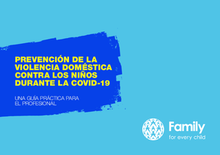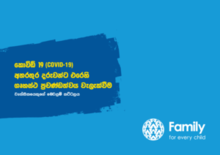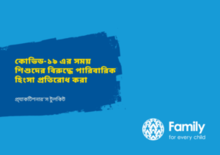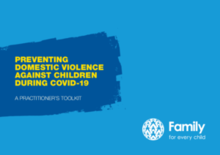The Context
The COVID-19 pandemic has placed children at a higher risk of abuse and violence at home with domestic and gender-based violence increasing around the world. This has had both immediate and longterm consequences for children. z In the first three months of the pandemic up to 85 million more girls and boys worldwide may have been exposed to physical, sexual and/ or emotional violence. School closures interrupted education for 1.6 billion children and meant that 500,000 more girls were at risk of forced marriage. Eighty per cent of studies looking at violence against women and children linked increased violence to COVID-19 and associated pandemic responses. The most prevalent child protection risks included a rise in physical violence against children at home, increased risks of sexual and gender-based violence at home, and psychological and emotional violence and distress. Children with disabilities were found to be increasingly vulnerable.4 Many Family for Every Child alliance members reported increased domestic violence against children either directly in the form of child abuse, or through children being affected by increased intimate partner violence within families. Some children also experienced sexual abuse. Some faced child abuse as part of the intergenerational cycle where violent behaviour is passed on from adults to children.
Purpose of the Toolkit
Alliance members strengthened and adapted their service delivery to provide vital support in the changed circumstances. This Toolkit uses their experiences and lessons learned to guide practitioners to support children and families to prevent domestic violence from affecting children. With specific resources focused on prevention and response, a variety of practices from around the world are given here, to encourage cross-learning and exchange and to generate new learning across the alliance and beyond.
Using New Strategies During COVID-19
Alliance members adapted tried and tested practices to be suitable for the COVID-19 crisis, for example, identifying children at risk, bringing services to the community when movement was restricted, and developing innovative ways to provide psychosocial services. The resources in the toolkit give guidance for practitioners to whom cases of abuse are disclosed and allow for wide adaptation. The toolkit includes guidance for practitioners on the application of the practices and the critical factors to be taken into account when supporting children in this context, such as having trauma-informed capacities.




